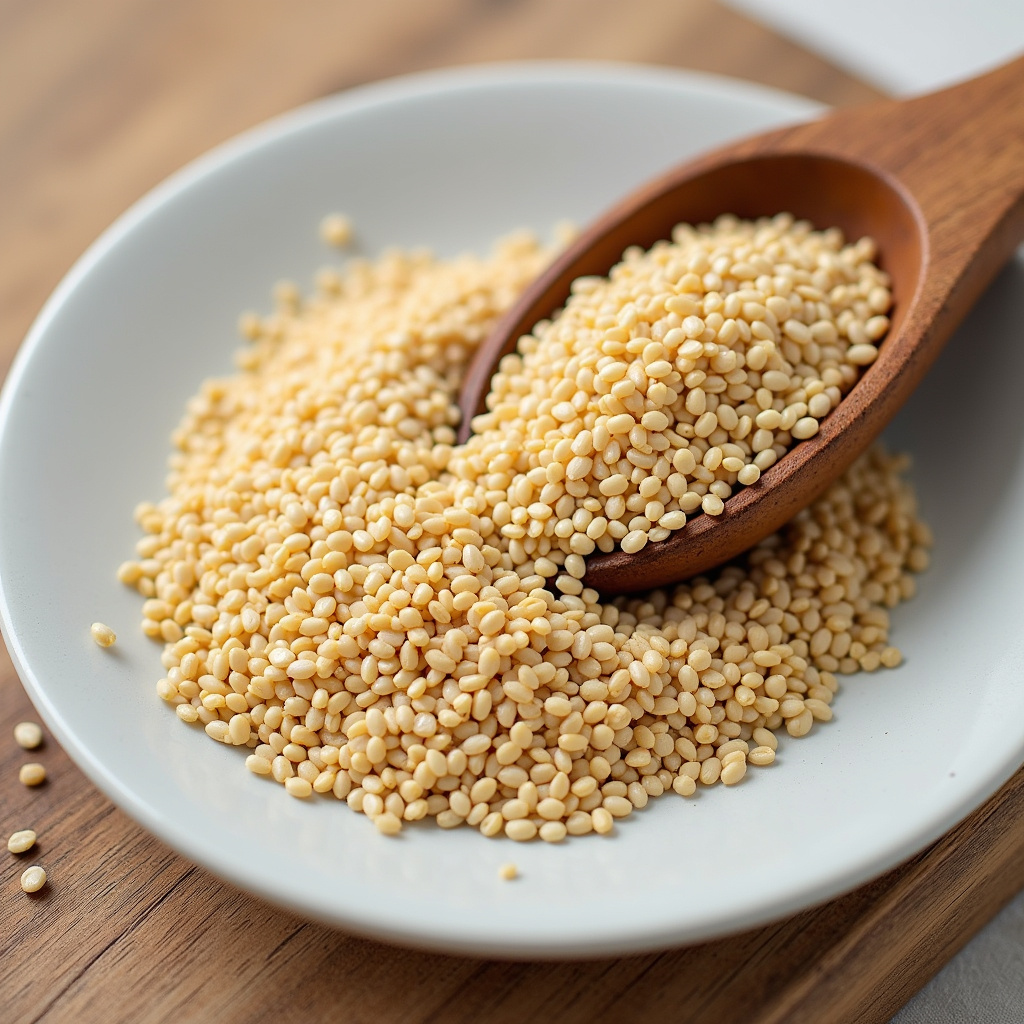The Nutritional Goldmine: Why Sesame Seeds Are a Must-Have

Sesame seeds, tiny yet mighty, have been a staple in various cuisines around the world for centuries. Often overlooked due to their size, these small seeds are packed with essential nutrients and health benefits that can significantly enhance your diet. This article delves into the reasons why sesame seeds are a nutritional goldmine and why they should be a part of your everyday meals.
History and Cultural Significance of Sesame Seeds
Sesame seeds (Sesamum indicum) are one of the oldest cultivated oilseeds, dating back over 3,000 years. Originating in Africa and Asia, they have been used in various culinary traditions and medicinal practices. In many cultures, sesame seeds symbolize prosperity and fertility, often featured in rituals and celebrations. Their versatility makes them a popular choice in dishes ranging from Asian stir-fries to Middle Eastern pastries.
Nutritional Profile of Sesame Seeds
Despite their small size, sesame seeds boast an impressive nutritional profile. Here’s a breakdown of their key components:
- Protein: Sesame seeds are a great source of plant-based protein, containing about 5 grams per ounce. This makes them a fantastic addition for vegetarians and vegans.
- Healthy Fats: Roughly 50% of sesame seeds are composed of fat, predominantly unsaturated fats, which are beneficial for heart health.
- Vitamins and Minerals: They are rich in essential vitamins and minerals, including calcium, iron, magnesium, phosphorus, and B vitamins.
- Antioxidants: Sesame seeds contain lignans and other antioxidants that can help combat oxidative stress and inflammation in the body.
Health Benefits of Sesame Seeds
Incorporating sesame seeds into your diet can lead to numerous health benefits, including:
1. Heart Health
The unsaturated fats in sesame seeds can help lower bad cholesterol levels and reduce the risk of heart disease. Additionally, the presence of magnesium aids in blood pressure regulation.
2. Bone Health
High in calcium, sesame seeds contribute to stronger bones and teeth. A small serving can provide a substantial portion of your daily calcium needs, making them an excellent choice for those who are lactose intolerant.
3. Antioxidant Properties
The antioxidants in sesame seeds, particularly sesamin and sesamolin, play a vital role in protecting the body against oxidative damage, potentially reducing the risk of chronic diseases.
4. Blood Sugar Control
Sesame seeds may help stabilize blood sugar levels due to their high fiber content, making them a good choice for individuals with diabetes.
How to Incorporate Sesame Seeds into Your Diet
Adding sesame seeds to your meals is easy and versatile. Here are some ideas:
- Sprinkle on Salads: Add a handful of sesame seeds to your salads for a crunchy texture and nutty flavor.
- In Baking: Incorporate sesame seeds into bread, muffins, or crackers for added nutrition.
- In Dips and Spreads: Use tahini, a paste made from ground sesame seeds, as a base for dips like hummus or as a dressing for salads.
- In Cooking: Toast sesame seeds and use them as a garnish for stir-fries, soups, or roasted vegetables.
Potential Allergies and Considerations
While sesame seeds offer numerous benefits, it’s essential to note that they can cause allergic reactions in some individuals. Symptoms may include skin rashes, digestive issues, or more severe reactions. If you are introducing sesame seeds into your diet for the first time, start with small amounts to ensure you do not have an allergic response.
Conclusion
Sesame seeds are undoubtedly a nutritional goldmine, rich in essential nutrients and health benefits. With their versatility, they can easily be incorporated into various dishes, enhancing both flavor and nutrition. Whether you’re looking to improve your heart health, strengthen your bones, or simply add a crunchy texture to your meals, sesame seeds are a must-have ingredient in your pantry. Start enjoying the numerous benefits of these small but powerful seeds today!




